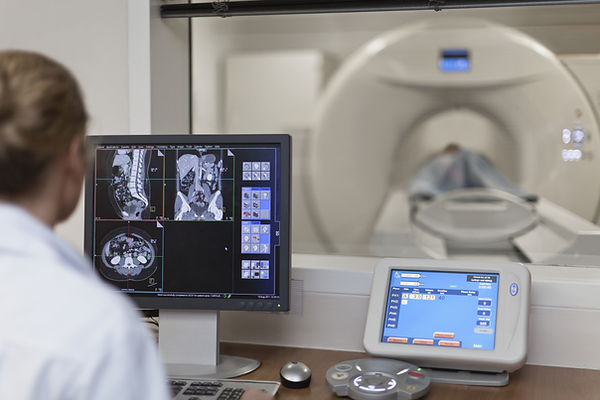I felt confident & very comfortable in speaking to Dr. Zheng.
DERRICK W.
August 28, 2021 at 6:30pm
Very professional
SUZANNE K.
August 16, 2021 at 9:35pm
Your Health Starts in Your GUT


Resources and Education
Please use our Resources and Education site as a resource to learn more about gastroenterology, procedures, diseases & disorders, and much more! Our Featured Topics section is great for patients to read about most common and pressing digestive issues. The More Reading Materials section might be useful if you have certain symptoms you would like to research. This section includes common digestive disease topics, liver diseases, rare GI disorders, diagnostic procedures and more general reading. Obtaining these resources will not only benefit your health, but it can help you decide if you may need to schedule an appointment with a gastroenterologist. Always seek professional help if you believe you have any health problems. Call Dr. Zheng to schedule an appointment today!
Featured Topics

Gastritis and Gastropathy
IBS (Irritable Bowel Syndrome)
Diverticulosis & Diverticulitis
Nonalcoholic fatty liver disease (NAFLD)&NASH
https://www.niddk.nih.gov/health-information/liver-disease/nafld-nash/definition-facts
Health Risk of Obesity
https://www.niddk.nih.gov/health-information/weight-management/health-risks-overweight
Common Digestive Disease Topics
Your Digestive System & How it Works | NIDDK
https://www.niddk.nih.gov/health-information/digestive-diseases/digestive-system-how-it-works


The GI tract is a series of hollow organs joined in a long, twisting tube from the mouth to the anus. The hollow organs that make up the GI tract are the mouth, esophagus, stomach, small intestine, large intestine, and anus. The liver, pancreas, and gallbladder are the solid organs of the digestive system. The main function of GI tract is digest and absorb nutrients.

Common Digestive Disease Conditions
Liver Diseases


The liver is the largest solid organ and the largest gland in the human body. ... Classed as part of the digestive system, the roles of the liver include detoxification, protein synthesis, and the production of chemicals that help digest food. ... This vital organ carries out more than 500 functions:
The major functions of the liver include:
-
Bile production and Fat metabolization: Bile helps the small intestine break down and absorb fats, cholesterol, and some vitamins. Bile consists of bile salts, cholesterol, bilirubin, electrolytes, and water. Bile breaks down fats and makes them easier to digest.
-
Absorbing and metabolizing bilirubin: Bilirubin is formed by the breakdown of hemoglobin. The iron released from hemoglobin is stored in the liver or bone marrow and used to make the next generation of blood cells.
-
Metabolizing carbohydrate and proteinss: Carbohydrates are stored in the liver, where they are broken down into glucose and siphoned into the bloodstream to maintain normal glucose levels. They are stored as glycogen and released whenever a quick burst of energy is needed. Bile helps break down proteins for digestion.
-
Vitamin and mineral storage: The liver stores vitamins A, D, E, K, and B12. It keeps significant amounts of these vitamins stored. In some cases, several years' worth of vitamins is held as a backup. The liver stores iron from hemoglobin in the form of ferritin, ready to make new red blood cells. The liver also stores and releases copper.
-
Detoxification (Filters the blood): The liver filters and removes compounds from the body, including hormones, such as estrogen and aldosterone, and compounds from outside the body, including alcohol and other drugs.
-
Supporting blood clots: Vitamin K is necessary for the creation of certain coagulants that help clot the blood. Bile is essential for vitamin K absorption and is created in the liver. If the liver does not produce enough bile, clotting factors cannot be produced.
-
Immunological function: The liver is part of the mononuclear phagocyte system. It contains high numbers of Kupffer cells that are involved in immune activity. These cells destroy any disease-causing agents that might enter the liver through the gut.
-
Synthesis of angiotensinogen: This hormone raises blood pressure by narrowing the blood vessels when alerted by production of an enzyme called renin in the kidneys.
An organ as complex as the liver can experience a range of problems. A healthy liver functions very efficiently. However, in a diseased or malfunctioning liver, the consequences can be dangerous or even fatal.
Examples of liver disease include:

More Digestive Diseases

Bowel Control Problems/ Fecal Incontinence
Peptic Ulcers (Stomach Ulcers)
Gastroparesis (Lazy stomach)
https://www.niddk.nih.gov/health-information/digestive-diseases/gastroparesis/definition-facts
Viral Gastroenteritis (Stomach Flu)
https://www.niddk.nih.gov/health-information/digestive-diseases/viral-gastroenteritis
IBS (Irritable Bowel Syndrome)

More Reading Materials
Nonalcoholic fatty liver disease (NAFLD)&NASH
https://www.niddk.nih.gov/health-information/liver-disease/nafld-nash/definition-facts
Fatty Liver and NASH in Children
https://www.niddk.nih.gov/health-information/liver-disease/nafld-nash-children/definition-facts
PBC (Primary Biliary Cirrhosis)
PSC (Primary Sclerosing Cholangitis)
Zollinger-Ellison Syndromw
https://www.niddk.nih.gov/health-information/digestive-diseases/zollinger-ellison-syndrome
Short Bowel Syndrome
https://www.niddk.nih.gov/health-information/digestive-diseases/short-bowel-syndrome
Anatomic problems of Lower GI tract
Intestinal Pseudoobstruction
https://www.niddk.nih.gov/health-information/digestive-diseases/intestinal-pseudo-obstruction
GI Procedures/Diagnostic Tests
Gastroenterologist Dr. Yi Jenny Zheng M.D., Ph.D. is committed to the health of her patients and performs a number of procedures. Additional tests * are done by experienced radiologist.
These procedures and diagnostic tests are integral in accurately diagnosing and treating various digestive issues listed on this site.
Lower GI Series (Barium Enema) *
https://www.niddk.nih.gov/health-information/diagnostic-tests/lower-gi-series
Virtual Colonoscopy *
https://www.niddk.nih.gov/health-information/diagnostic-tests/virtual-colonoscopy
Upper GI Endoscopy (EGD)
https://www.niddk.nih.gov/health-information/diagnostic-tests/upper-gi-endoscopy
Flexible Sigmoidoscopy
https://www.niddk.nih.gov/health-information/diagnostic-tests/flexible-sigmoidoscopy
ERCP
by her partener Dr Ming Fang, Harvard trained Gastroenterologist.




More Reading
"He that loves reading has everything within his reach." -- William Godwin
Achknowdgement
The health information here is informed by NIDDK research, reviewed by doctors, and provided to help you understand the diseases and conditions you or your loved ones may face.
The National Institute of Diabetes and Digestive and Kidney Diseases (NIDDK) is part of the United States National Institutes of Health (NIH)
The mission of the National Institute of Diabetes and Digestive and Kidney Diseases (NIDDK) is to conduct and support medical research and research training and to disseminate science-based information, including digestive diseases, nutritional disorders, obesity; and metabolic diseases, to improve people’s health and quality of life.
Questions? Please Contact Dr. Zheng for a Consultation

Health Risk of Obesity
https://www.niddk.nih.gov/health-information/weight-management/health-risks-overweight
Dieting and Gallstone
https://www.niddk.nih.gov/health-information/digestive-diseases/gallstones/dieting
Your Digestive System & How it Works
https://www.niddk.nih.gov/health-information/digestive-diseases/digestive-system-how-it-works
Smoking and Your Digestive System
https://www.niddk.nih.gov/health-information/digestive-diseases/smoking-digestive-system
Ostomy surgery of Bowel
https://www.niddk.nih.gov/health-information/digestive-diseases/ostomy-surgery-bowel
